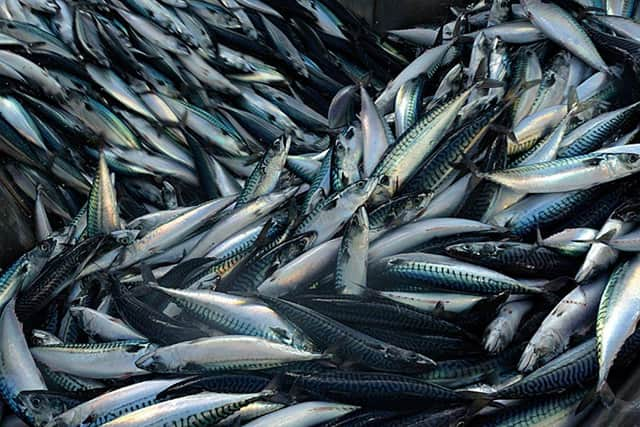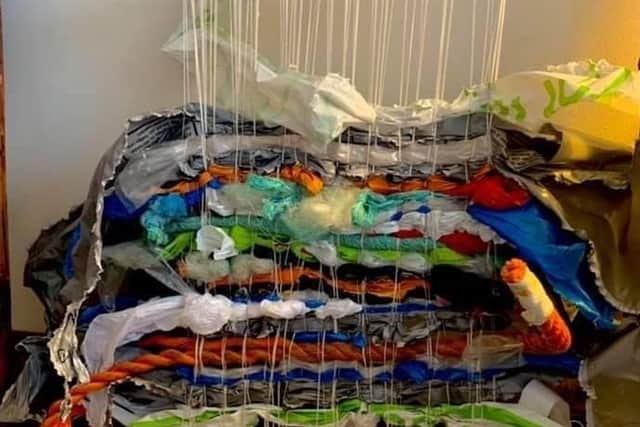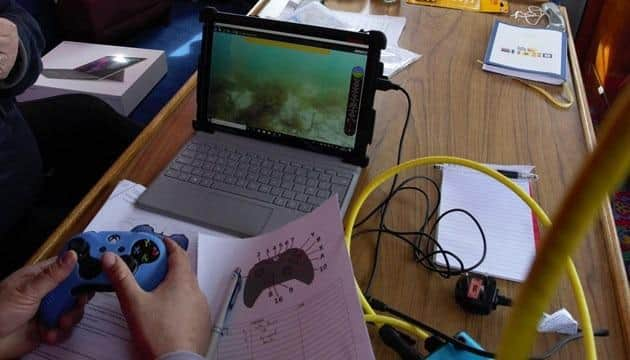Emptying seas and oceans cannot sustain the insatiable demand from large-scale commercial fishing
In the far south of England, as it is in many of Scotland’s lesser ports, a small ‘fleet’ of inshore boat were skippered into rougher, deeper seas in the constant pursuit of just enough of catch to pay fuel bills and other running costs; risk to life increases as pressure to pay the dwindling crew some sort of ‘wage’.
Meanwhile, in scenes reminiscent of the ‘Silver Darlings’ bounty days of plentiful herring, a £35 million state-of-the art trawler was steaming past frolicking Orca off the Western Isles to the Sea of Norway.
Advertisement
Hide AdAdvertisement
Hide AdIts ‘target’ was a Japanese factory ship where an expert buyer would judge if the catch was worth £1m in the Far East’s very particular restaurants – apparently fresh mackerel eyes are a delicacy. If they did not make the grade the catch would be demoted and worth less.
Fishing has sustained humanity for all time, inland freshwater and coastal catches were the basis of entire diets, in some cases cultures.
Modern methods saw the cross-roads passed generations ago and since they first started to diminish there has been little by the way of good news. There is the occasional celebration as one species makes an often all-too-brief ‘comeback’, usually geo-specific and non sustainable.
We also find new habit and slap new protection orders on sea beds and sea lochs, particularly for rare bi-valve molluscs. Some of these protected areas are so far out in the Atlantic that they could have been plundered without anyone knowing.
All manner of radical solutions have been discussed; why are these anglers posting social media images of tiny fish landed from our shores which in days past would have led to a stern word and possibly a fine? These are the tip of the iceberg but the kernel of the argument. We like to catch, kill and eat stuff – but what do we do when there is nothing left?


To help combat this, the second round of the Community Marine Equipment fund has been launched this month to assist the monitoring Scotland’s seabed and coastlines.
The aim is to enable communities to gain the skills, experience and knowledge to participate in biodiversity and improve knowledge of marine species and habitats.
Individual grants of up to £1,500 will be offered with up to £3,000 for joint applications between two or more groups.
Advertisement
Hide AdAdvertisement
Hide AdThe previous rounds provided funding of £34,000 since 2019 to 22 organisations, ranging from the Berwickshire Marine Reserve to the Community of Arran Seabed Trust (COAST), the Knoydart Ranger Service, Shark and Skate Conservation Scotland, and Friends of the Sound of Jura.


These groups used funds to buy equipment including for surveys of native oysters, flapper skates, sharks, whales, and other marine habitats and species.
The project is a partnership between NatureScot, Fauna & Flora International (FFI), communities, local groups and individuals, with funding support from the William Grant Foundation.
NatureScot project officer Lucy Cotgrove said: “People living in coastal communities around Scotland have told us they want to get more involved with protecting marine life, but may not have the equipment and resources to carry out monitoring. We encourage communities and local groups to apply to us for any survey equipment that will help them. Scotland’s coasts and lochs are special places for marine habitats and wildlife, and the information that volunteers collect is vital and helps support decisions on how to protect these areas. It also gives communities a way to contribute and play their part in protecting our marine environment”
Fauna & Flora International’s Project Manager for Scotland Rebecca Plant said: “Coastal communities across Scotland are well-placed to harness solutions to ensure healthy, well-managed seas, and many communities are looking to play a greater role in decisions around local and national marine management.


“The collection of marine data through surveying and monitoring is a key process underpinning decision-making, however there are barriers to community involvement.”
Nick Addington, Chief Executive of the William Grant Foundation, said: “We’ve seen evidence of how effective modern survey technology is in the hands of community volunteers.”
There is more information on the NatureScot website for applicants, who can also contact [email protected] with any questions.
Comments
Want to join the conversation? Please or to comment on this article.